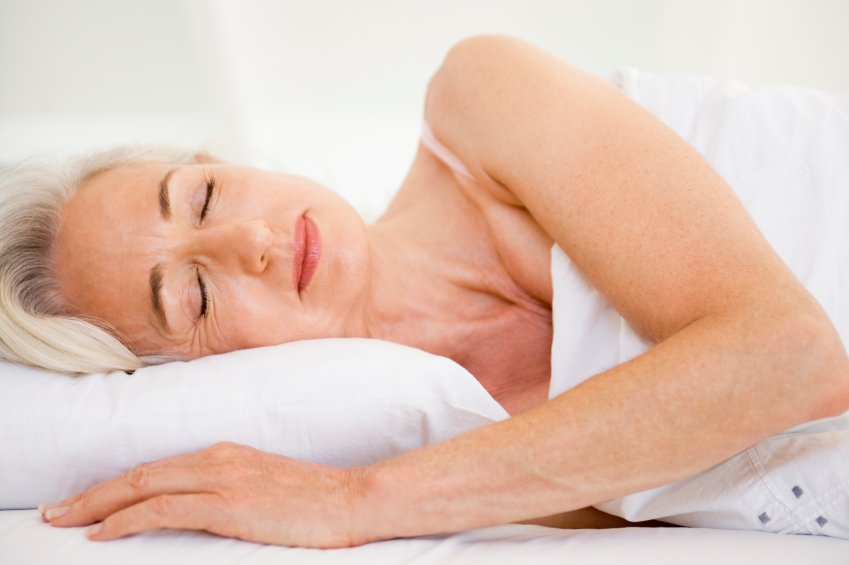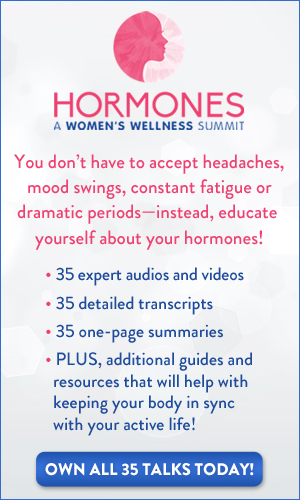Natural Remedies for Your Menopause Symptoms
Beauty Sleep: Look 10 Years Younger
Beauty sleep is no myth. It really works.
You can see it for yourself in the mirror every morning. If you haven't gotten your beauty sleep you can see dark circles and deep wrinkles. It adds years to your face.
And it's not just an old wives' tale. Studies show that getting enough sleep helps keep you younger at the deep level of your cells' DNA.
Harvard researchers have proven that women who got less than 6 hours sleep per night had telomeres that were 12% shorter. That was about equal to almost 10 extra years of aging. Telomeres are tiny caps on the ends of your DNA that protect it from premature damage.

Beauty Sleep Counters Cortisol
A good's night sleep can also undo the aging effects of a stressful day. the cortisol that you produce under stress also damages your DNA. So it's very important to get at least 7 hours of deep restful sleep every night. It can be like getting an overnight facelift.
But many women in menopause have difficulty sleeping. Night sweats and anxiety can be a problem when it comes to getting your beauty sleep.
In addition, too much light can interfere with your ability to get to sleep and stay asleep. That's because light suppresses melatonin, your sleep hormone.
Studies show even normal lighting interferes with melatonin. It delays the time when melatonin kicks in by about 90 minutes a night. And if you have lights on in the room while you sleep you can decrease your melatonin by more than 50%.
Blue light especially robs you of the beauty sleep you need to repair your skin and quiet cortisol. It's the kind of light that keeps you alert and awake during the day. But it also includes lights from TVs, computers, cell phones, and clock-radios that can keep you up at night.
5 Tips for Better Beauty Sleep

1. Turn Down The Lights. Gradually start turning down the brightest lights about two hours before bed. And stop looking at your electronic toys about an hour before bed.
2. Dim Your Computer Screen. Lights from computer screens keep you energized. But you can dial down the brightness of your screen automatically with free software. A program called "f.lux" adapts your computer's display to the time of day. As the sun goes down so does the light from your screen so you can start to wind down for some rest. Get the program at www.justgetflux.com
3. Ban Blue Light From the Bedroom. Keep electronic gadgets, tablets, readers, and other devices out of the bedroom. And find a red bulb if you need a nightlight to find the bathroom. Red light won't interfere with your sleep hormone. Try this red night light.
4. Read a Paper Book. Remember those? Reading helps relax your brain and your body. Just make sure it's an old fashioned paper book with no digital blue lighting.
5. Boost Your Melatonin Levels. Here's how:
- Get some natural sunlight every day to trigger melatonin production and help you get some deep sleep.
- Eat tropical fruits. They help boost your melatonin production. Pineapples increase blood levels of melatonin by 266%. Also try bananas, oranges, tart cherries, ginger, and mangosteen.
- Take a melatonin supplement. About 3 mg a day around 20 minutes before you want to go to sleep is all you need. Sprays, drops, or sublingual tablets are easier to absorb and work faster. I like Source Natural's NutraSpray Melatonin.
Sources:
Liang G, Schernhammer E, Qi L, Gao X, De Vivo I, Han J., “Associations between rotating night shifts, sleep duration, and telomere length in women.” PLoS One. 2011;6(8):e23462.
Joshua J. Gooley et al, “Exposure to Room Light before Bedtime Suppresses Melatonin Onset and Shortens Melatonin Duration in Humans.” J Clin Endocrinol Metab. 2011; 96(3): E463–E472.
Johns NP, Johns J, Porasuphatana S, Plaimee P, Sae-Teaw M. “Dietary intake of melatonin from tropical fruit altered urinary excretion of 6-sulfatoxymelatonin in healthy volunteers.” J Agric Food Chem. 2013 Jan 30;61(4):913-9.





